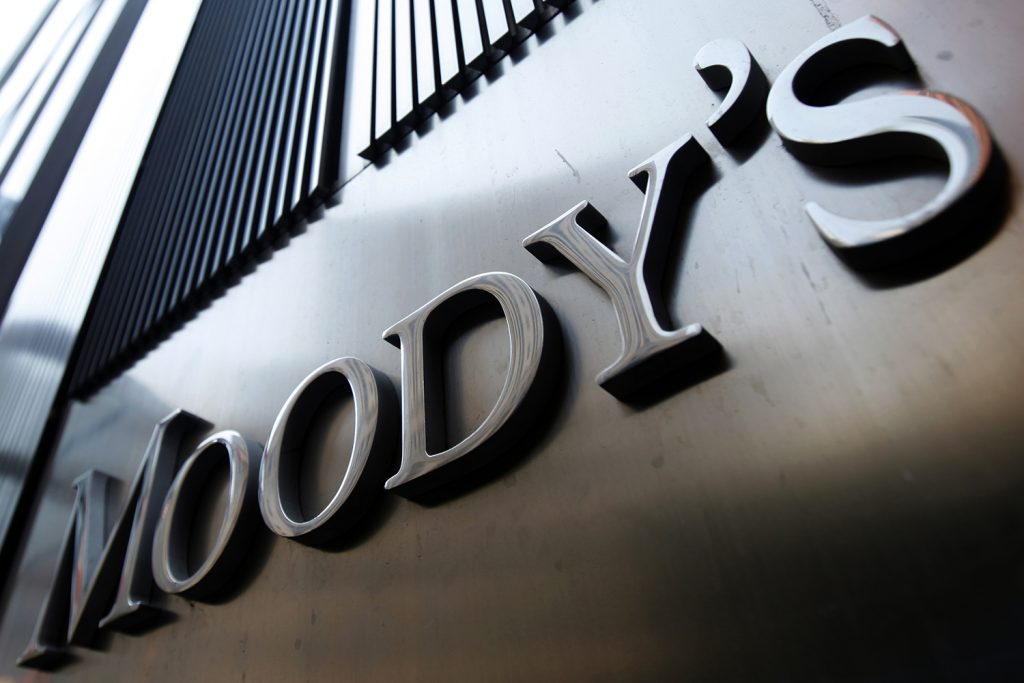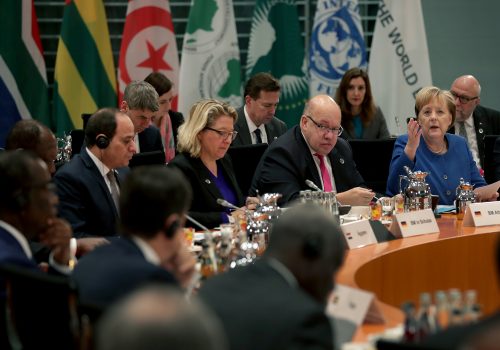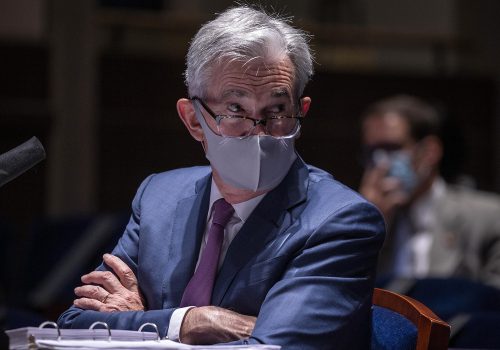Institutional investors and global lenders are digging in their heels as the COVID-19 pandemic tightens its grip on Africa. A call from the Group of Twenty (G20) way back in April for private sector forbearance, in the form of a temporary standstill on interest payments, has been ignored. One possible way out is for the three global credit rating agencies to provide the analytical muscle that could help in breaking this impasse.
Fitch Ratings, Moody’s Investors Service, and Standard & Poor’s Financial Services have done business during the pandemic doing what they always do—providing ratings assessments and warnings on the credit worthiness of corporate and sovereign borrowers. The pandemic has forced global policymakers to introduce unconventional measures to deal with the public health and economic damage. But on the core issue of how African governments should respond to this unprecedented humanitarian crisis, the private sector is pursuing a rigid approach. The situation must change.
The facts are well-known, but worth repeating. As the virus first spread across the globe, G20 leaders agreed to a debt standstill for seventy-three low-income countries—many of them in Africa. As of late July, forty-one countries had requested relief that would free up about $12 billion of debt service this year. In July, the G20 reiterated its call for international banks and investors to show forbearance on the estimated $45 billion of payments on private sector foreign debt owed by African sovereigns this year.
Over the past two months, the pandemic has gained momentum across Africa. Testing in many countries is limited, but more than 1.2 million cases have been reported, with over 600,000 in South Africa alone. Beyond the immediate toll, the diversion of scarce resources from other crucial programs—especially treatment and prevention of AIDS, tuberculosis, and malaria—is increasing the human toll of the crisis. In a recent report, the World Food Program estimated that “the number of acutely food insecure people in East Africa could increase by 73 percent” to 41.5 million before the end of 2020.
The rating agencies have assiduously tracked the financial impact of the crisis. In its August 13 “Credit Outlook” report (available only to paying customers), Moody’s estimated that even after the G20’s official debt relief, the eligible countries would face “an outstanding shortage of around $40 billion” to the end of the year and assigned “negative outlooks to a number of sovereigns[,] underscoring the challenge they face, irrespective of the [G20] initiative.”
Moody’s has downgraded Ethiopia for “its stated intention to seek official sector debt service relief” under the G20 initiative and placed Cameroon, Cote d’Ivoire, and Senegal under rating “review for downgrade.” In its August 13 report, Moody’s says that some governments have continued to pay their private creditors even after obtaining official relief, and “[a]s a result, the risk of [private sector involvement] in all or most cases appears to have diminished.” Some of the thirty-two countries that have chosen not to participate in the initiative have indicated privately that they are concerned about the threat of ratings downgrades.
Fitch warned a few days after the G20 initiative was announced that the “preferred creditor status” of development banks like the World Bank could suffer should developing countries suspend debt payments to them. This led the G20, in its July communique, to call upon those institutions to protect their current ratings even as they “go further” in supporting debt relief.
Public pressure on lenders and bondholders to join the G20 effort—including from UN agencies—is not yielding results. The key banks lending to Africa have called for case-by-case negotiations. And in an April statement, bondholders voiced opposition to a “rushed, blanket approach” to debt relief, asserting that “future generations of Africans will need to access private capital to invest in hospitals, roads, education, healthcare systems, and other infrastructure critical for economic and societal development.”
Many bondholders do not appear to grasp that the pandemic is very different from a financial crisis whose origins are rooted in market failures. The Africa exposures of institutional investors and global banks are only a small part of their portfolios. There is little risk of a wave of sovereign defaults just because of the G20’s temporary standstill.
Over the past decade, most African governments have proven to be reliable partners in global finance, rewarding investors with significantly higher returns than are available from treasuries or gilts. Instead of lecturing countries about preserving the sanctity of “credit culture,” perhaps it is time to discuss burden sharing. There is plenty of precedent for that—witness bondholders’ recent debt-relief agreement with Argentina.
It is time therefore for the rating agencies, who have considerable clout in influencing the private sector, to play a more active role in finding a sensible solution. What can be done?
Perhaps there should be a shared public-private understanding for a suspension of payments on African sovereign debt, with a firm commitment by governments to make good on what is owed to the private sector after the International Monetary Fund (IMF) raises the green flag that economic conditions have improved. The rating agencies could provide independent economic assessments, as they always do, but they should crucially suspend rating judgments while the standstill is in progress. Global cooperation during the pandemic will require finding such innovative, outside-of-the-box solutions.
In addition, what is needed post-pandemic is an independent review of Eurobond and other contracts signed by African governments. These contracts are heavily skewed in favor of creditors, with no flexibility to deal with emergencies like a pandemic. Over the past two decades, creditors have introduced collective action clauses into sovereign bond contracts to facilitate orderly resolution of debt crises. We need to consider a clause in bonds issued by low-income countries to suspend interest payments under extraordinary conditions, with the tacit support of the rating agencies.
It all comes back to the need for global leadership and cooperation. The signals from international agencies like the IMF are that the economic downturn in developing countries is likely to entail long-term scarring. That means the debt crisis will not just “disappear,” as some leaders predicted for the virus itself.
Credit rating agencies should offer a nuanced understanding of the unique needs of African nations. The G20 and global regulators have the power to persuade international investors that a little forbearance could save lives and livelihoods. But that requires more political will than they have demonstrated so far.
Vasuki Shastry, formerly with IMF and Standard Chartered Bank, is an associate fellow at Chatham House and author of “Resurgent Indonesia – From Crisis to Confidence.”
Jeremy Mark was a senior communications adviser and speechwriter to the IMF management team and previously an award-winning reporter for The Asian Wall Street Journal.
Further reading:
Image: A Moody's sign on the 7 World Trade Center tower is photographed in New York August 2, 2011. REUTERS/Mike Segar


